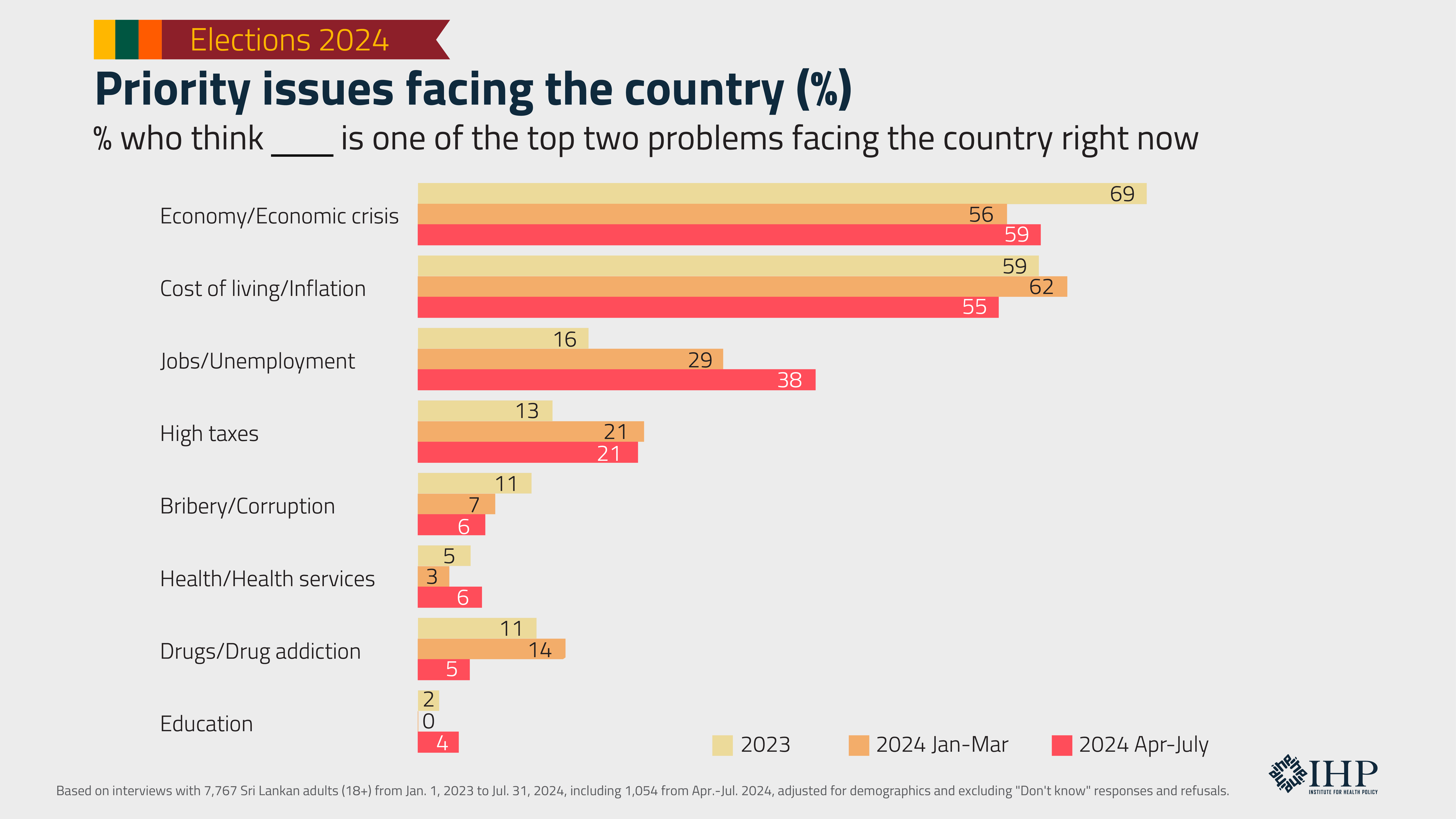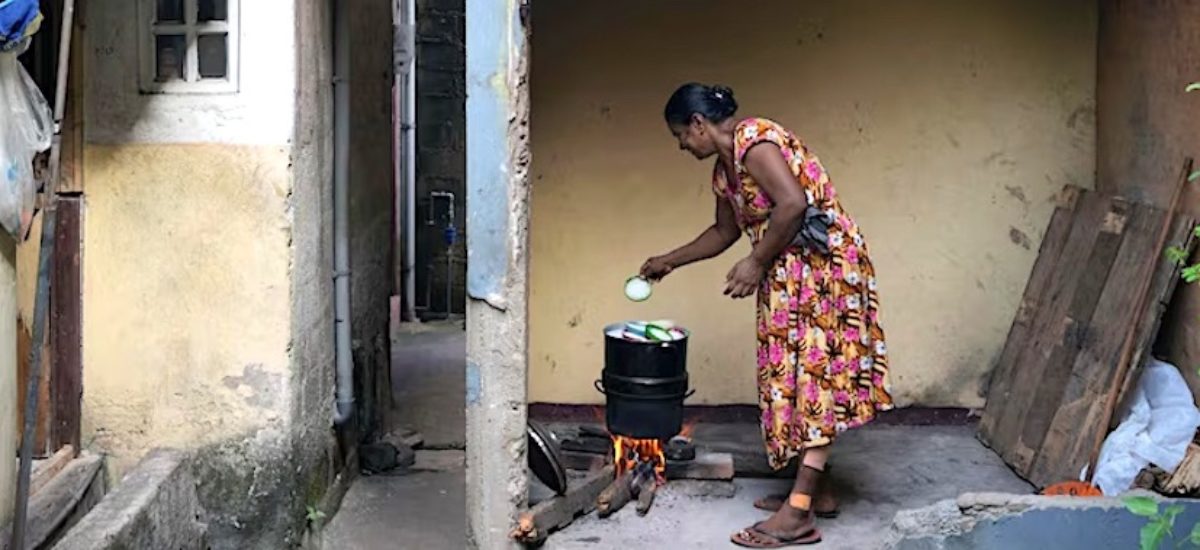Photo courtesy of ABC
Sri Lankans overwhelmingly cite the economy and inflation as their biggest concerns going into the September presidential election in the latest Institute for Health Policy (IHP) Sri Lanka Opinion Tracker Survey (SLOTS) polling during April to July 2024. However, concerns about unemployment have been rising since the start of the year while the numbers citing corruption and drugs as top national problems have been declining.

The SLOTS poll asks respondents to name the top two problems facing the country with responses being unprompted. During April–July 2024, 59% named the economy (+3 points from January–March 2024) and 55% inflation (-7pts) as their top concerns. This was followed by 38% mentioning unemployment (+9pts) and 21% high taxes (-0.5pts). Smaller numbers cited corruption (6%), health (6%), drugs (5%), and education (4%) as in their top two concerns. None of the over a thousand respondents cited the presidential system, the constitution or democracy as priority problems.
While there is broad consensus that the economy is the most pressing national problem, better off and poorer people differ in their perceptions about what is important. The least affluent third are more likely (69%) than the richest third (52%) to think the economy is a top priority. In contrast, poorer Sri Lankans are less likely (54%) than the better off (63%) to cite inflation as a top problem. An even bigger contrast is seen with unemployment, which only one in five (18%) of poorest people cite as a top priority compared with one in two of the middle and most affluent.
Economic issues and inflation are the top concerns across all age groups. Younger Sri Lankans (18–29 years) are most concerned about inflation (60%) while concern about the economic crisis increases with age, reaching 67% among those aged 60 and older. Job related concerns are most common among the younger population but decrease with age.
The poorest one third differ in their concerns in other ways compared with the most affluent third. High taxes appear to be a problem that vexes the better off more with twice as many of the middle and most affluent (25%) citing it as a top problem compared to the poorest third (12%). In contrast, the poorest one third are much more likely to cite health (12%) and education (10%) – areas where government spending is critical – as being national problems than the better off (health 3%, education 1%). Poorer people are also much more likely (9%) to cite the drug problem as a top issue than the most affluent do (2%).
SLOTS combines data from a national sample of adults (ages 18 and over) reached by random digit dialling of mobile numbers and others coming from a national panel of respondents who were previously recruited through random selection. All estimates are weighted to be representative of the national population, including characteristics such as age, gender, province, sector, socioeconomic status, ethnicity and education.

